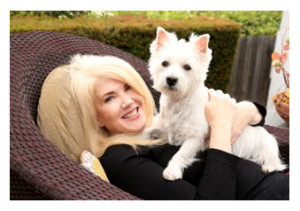By Tracey Cleantis
 According to Erik Erikson, the developmental psychologist, at each phase of life we have to reconcile a developmental challenge. In our 40’s, 50’s, 60’s and beyond, we are supposed to be at a stage of generativity (i.e. generosity) versus stagnation. What that means is that we are supposed to be giving back, thinking about others, and generally giving of ourselves or we will stagnate and feel like we are unproductive. Erikson says that if we succeed in this stage then we will develop the capacity for care.
According to Erik Erikson, the developmental psychologist, at each phase of life we have to reconcile a developmental challenge. In our 40’s, 50’s, 60’s and beyond, we are supposed to be at a stage of generativity (i.e. generosity) versus stagnation. What that means is that we are supposed to be giving back, thinking about others, and generally giving of ourselves or we will stagnate and feel like we are unproductive. Erikson says that if we succeed in this stage then we will develop the capacity for care.
As a psychotherapist and self-help author, I am in the business of thinking about others — it is literally my full time job (truth be told, it is two full time jobs). I love love love helping people, I love my work and I love writing books that make a difference in people’s lives, but there is a danger to all this helping. My generativity can sometimes sneak over into the area of codependency. If I come across someone who doesn’t have a job, a boyfriend, self-esteem, or success, I sometimes feel like I have to help them make that happen, and I will give and give and give until I am drained and tired and depleted.
Since I turned 50, the school of hard knocks has been in session, and I am happy to report that one of the gifts of being middle aged is that I am determined to get the lessons that life has for me, and not have to enroll in summer school to repeat the course again and again. The Spark Notes version of the lesson that I have learned is that, at least for now, I am sort of done with generativity. I get it; I have literally given at the office. I sheepishly admitted to a therapist friend that I am going into a new stage of development, one that Erikson didn’t write about, which I am calling the “I am not saving anyone in my personal or professional life who is not asking me to save them” phase. I am done trying to rescue, save, or motivate people who don’t want to be rescued, saved or motivated. I quit. I am done. I have decided to hang up my saving-others-from-themselves cape.
My friend nodded in recognition that she too was in this phase. “Yes to selfishness!” she said. I worried that the empathy police would overhear us and we would get in trouble for daring to utter the “selfish” word. We were, of course, to some degree, being ironic as we identified with generativity’s shadowy evil twin, selfishness. And, I think like many words that are so culturally loaded, we were trying to take selfish back and make it into something closer to self-care. It isn’t really selfishness that we were talking about, but rather about not depleting ourselves so fully that there is no self at all. We were talking about boundaries, limits, self-respect and the truth that none of us have endless energy, resources, and – gasp – time, and that is especially true in mid-life.
I, therefore, am declaring out loud that I am limiting my generativity to the workplace and focusing that care on me for now and letting other non-client adults take care of themselves (unless they clearly, absolutely and unequivocally communicate that they want my help, and even that help will come with limits).
As I look at my metaphorical cape hanging on the wall — dusty, dented, with some cuts, rips and scorch marks on it — I see that my desire to take care of, fix, and motivate has not all been entirely pure and selfless. There was a way that I got some ego need in being helpful. I sometimes gave to others in hopes that I would get good mojo back, like a kind of karmic savings account. I don’t need that any longer. I know that I am a helpful person and I don’t need to keep convincing others of that, or myself.
The truth is that if people don’t ask for my help, they may not want it. Even on occasion, when they ask for help they may not want it. I now pay close attention (to body language, behavior, and meta-communication) to see if people REALLY do or don’t want it, and I act accordingly.
If someone has asked for a teaspoon of something and you give them a quart, you are not giving them what they want and you are wasting resources. This is a big lesson and one that took me 50 years to figure out. Taking care of myself, knowing my limits, and not depleting myself for others is smart and it is not selfish.
I have, on occasion, felt guilty for success and wanted people to know that I didn’t think I was special. It was very very important for me to let everyone else know that I am not special and that they too can have love, success or whatever. It was a way that I protected against anyone being mad at me or envying me.
No doubt, it is important to give back to others in this and every stage of life. That said, I think that a real gift of middle age is to really understand that “no” is a complete sentence. You do not have to feel that you must give endlessly to be enough.
 Question of the Day: How have the 40s, 50s and 60s allowed you to stop the generativity and start taking better care of yourself? Has a little “selfishness” snuck in for you, too?
Question of the Day: How have the 40s, 50s and 60s allowed you to stop the generativity and start taking better care of yourself? Has a little “selfishness” snuck in for you, too?
© Tracey Cleantis
Tracey Cleantis, LMFT is a psychotherapist, best-selling author, workshop leader, blogger and speaker. Tracey has helped thousands of people let go of what isn’t working in their life and get to their Next Happy. Tracey is a frequently featured happiness expert on radio, TV and print media. She has been featured on Fox News, NPR, The Daily Mail, The Daily News, Publishers Marketplace, Psychologies Magazine, Redbook, Salon.com, Huffington Post, Forest and Bluff, Sheridan Road and Yahoo News, and in Jamie Cat Callan’s book “Bonjour, Happiness”. She is a Huffington Post contributor. Tracey’s best-selling book, The Next Happy: Let Go of the Life You Planned and Find a New Way Forward” (Hazelden, 2015) is available at bookstores everywhere. In 2016, Tracey’s second book, Self-care Is Not a Stupid Candle: How to Give Yourself What You Really Want and Need in Every Area of Your Life will be released by Hazelden.
You May Also Enjoy
“understand that ‘No’ is a complete sentence…” LOVE this!!! Great post, Tracey!
That’s a great line and so true!
Tracey, Thank you so much for this guest post. I still struggle with this — having difficulty saying no and setting limits when others “need” me. I’m going to return to this essay as a reminder that saying no is absolutely necessary in order to say YES to other acts of generativity — those that really count!
This is something I too have been learning, and that often no is more generous than yes. Sounds strange but it is hard to learn that sometimes the help people ask for and I used to be too inclined to give is a burden for me and them. Perhaps part of wisdom is learning to be effective, and that necessarily involves a layer of self interest or protection.